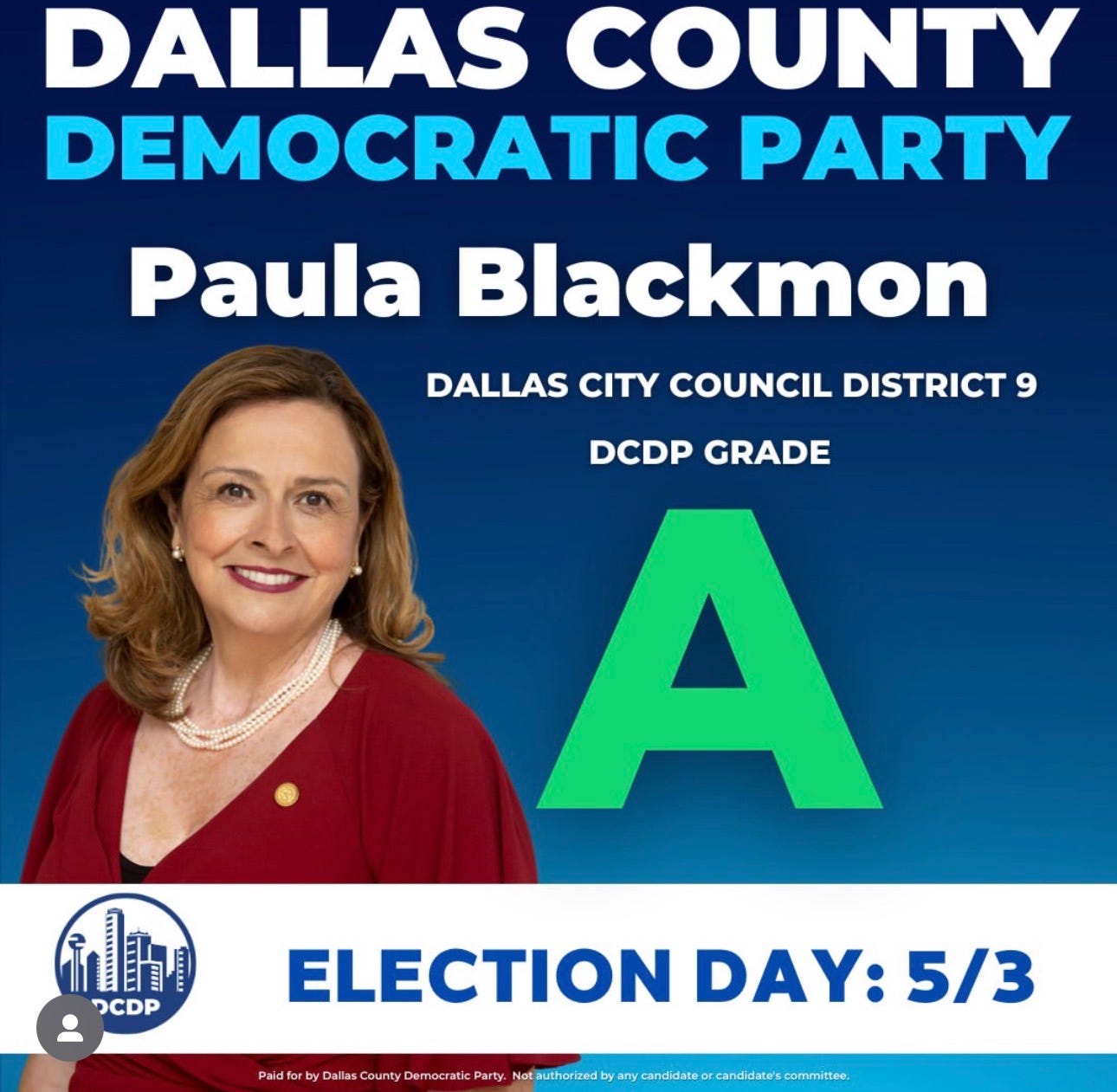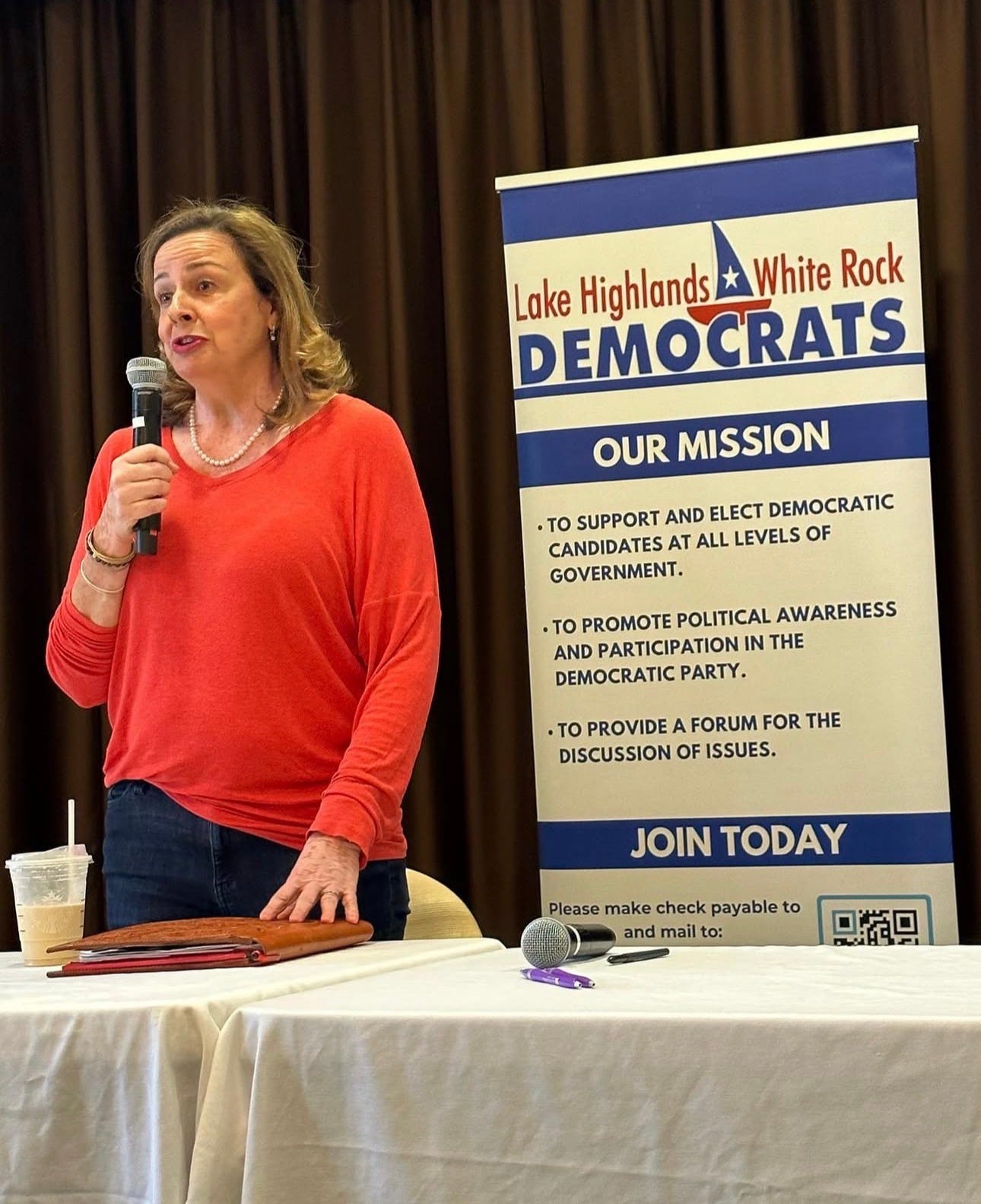Councilmember Admits Using City Lobbyist For WHAT?
A yikes we are monitoring.
At Dallas City Hall on August 27, 2025, Councilmember Paula Blackmon openly acknowledged something that is raising red flags among ethics watchers. While debating a proposal from Councilmember Adam Bazaldua to extend lobbyist Lorena Campos’ contract to a maximum of $457,000 over four years, Blackmon expressed support for the pay raise by saying she had asked Campos to lobby state senators in West Texas because of property she owns there.
“I’m inclined to support this [raise]... She’s got a group of people being from West Texas that she can touch because I ask her to help me with those senators, having property out there,” Blackmon said.
Campos has represented Dallas in Austin since 2018, but the city recently elected not to renew her contract during this year’s budget negotiations. Regardless, Councilmember Blackmon’s admission that she used Campos to lobby for her personal property has fueled serious questions of propriety regarding the use of taxpayer-funded resources for private gain.
The issue is not complicated: using a city-paid lobbyist to advance the personal property interests of a sitting councilmember is a potential conflict of interest under Dallas’s own ethics rules. The Dallas City Code of Ethics, Chapter 12A, Article II, Section 12A-4 requires officials to “take no actions that could benefit the official … personally … avoiding even the appearance of a conflict of interest.”
Further, the Conflict of Interest provisions in Chapter 12A, Article III prohibit a councilmember from using their position to secure special privileges or economic benefits for themselves.
Blackmon’s remarks suggest that a lobbyist being paid by Dallas taxpayers was pressed into service to assist with private property concerns outside the city. That scenario cuts directly against both the spirit and letter of the city’s ethics code.
Even if Blackmon were to later claim Campos’ lobbying was done outside her city contract, the ethics rules are equally clear that councilmembers must disclose potential conflicts and avoid actions that create even the appearance of impropriety.
Transparency here is essential. If Campos was asked to lobby state senators on Blackmon’s behalf—whether under her city contract or on her own time—the public deserves to know. Without disclosure, Dallas residents are left questioning whether their tax dollars were used to promote a councilmember’s private interests.
The city’s Office of Inspector General (or whoever is left in that office in his vacancy) should move quickly to investigate the matter. Blackmon’s statement was made publicly, on the record, at a council meeting. Dallas taxpayers deserve clarity and accountability.
Until Councilmember Blackmon explains the nature of her request and whether Campos was compensated privately, this episode will stand as a textbook example of why the city’s ethics code exists: to keep elected officials from blurring the line between public service and personal gain.






You should consider contacting the office of the relevant US Attorney. The feds often have jurisdiction in matters of political corruption at the state/local level.
Show me a decent honest politician. Both sides of the aisle are for sale...so save your money and buy yourself an American politician.